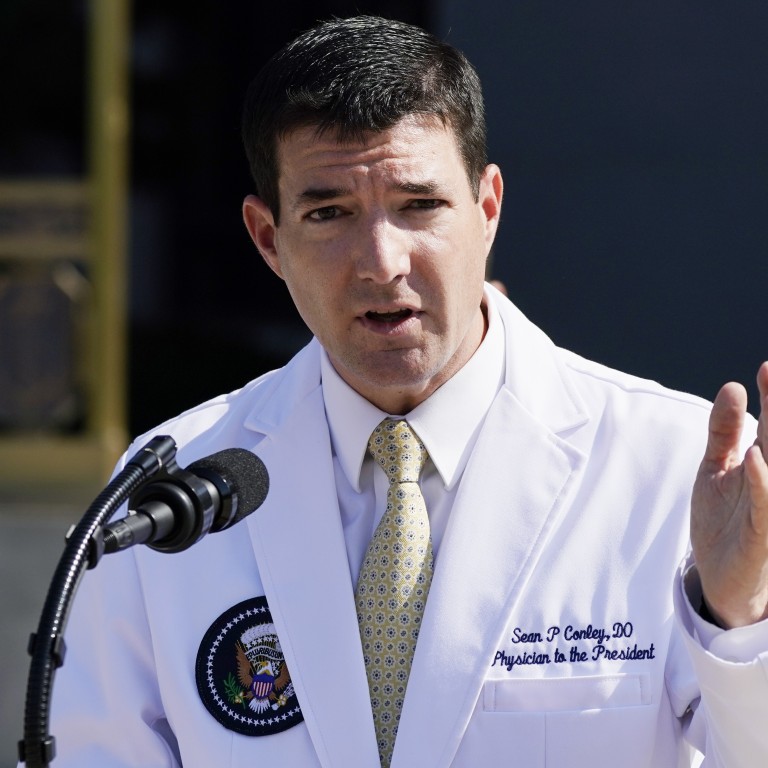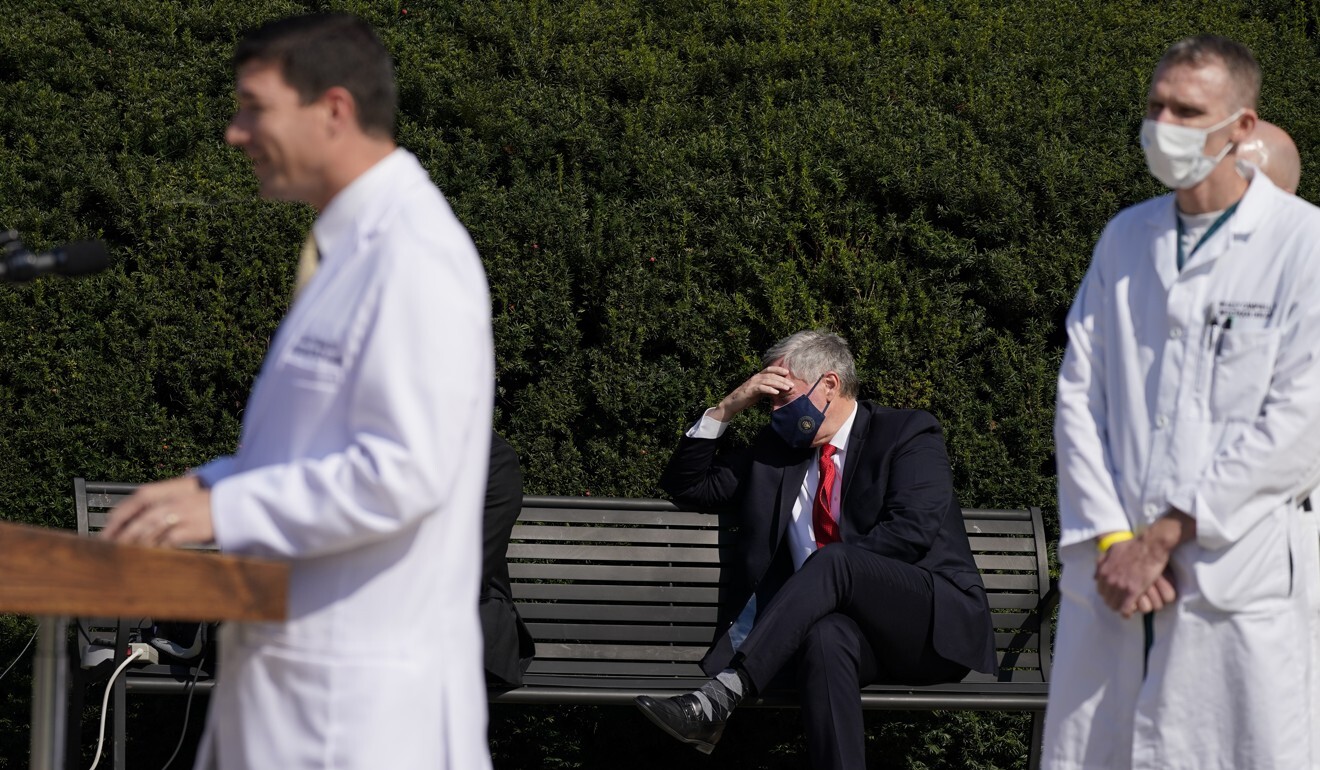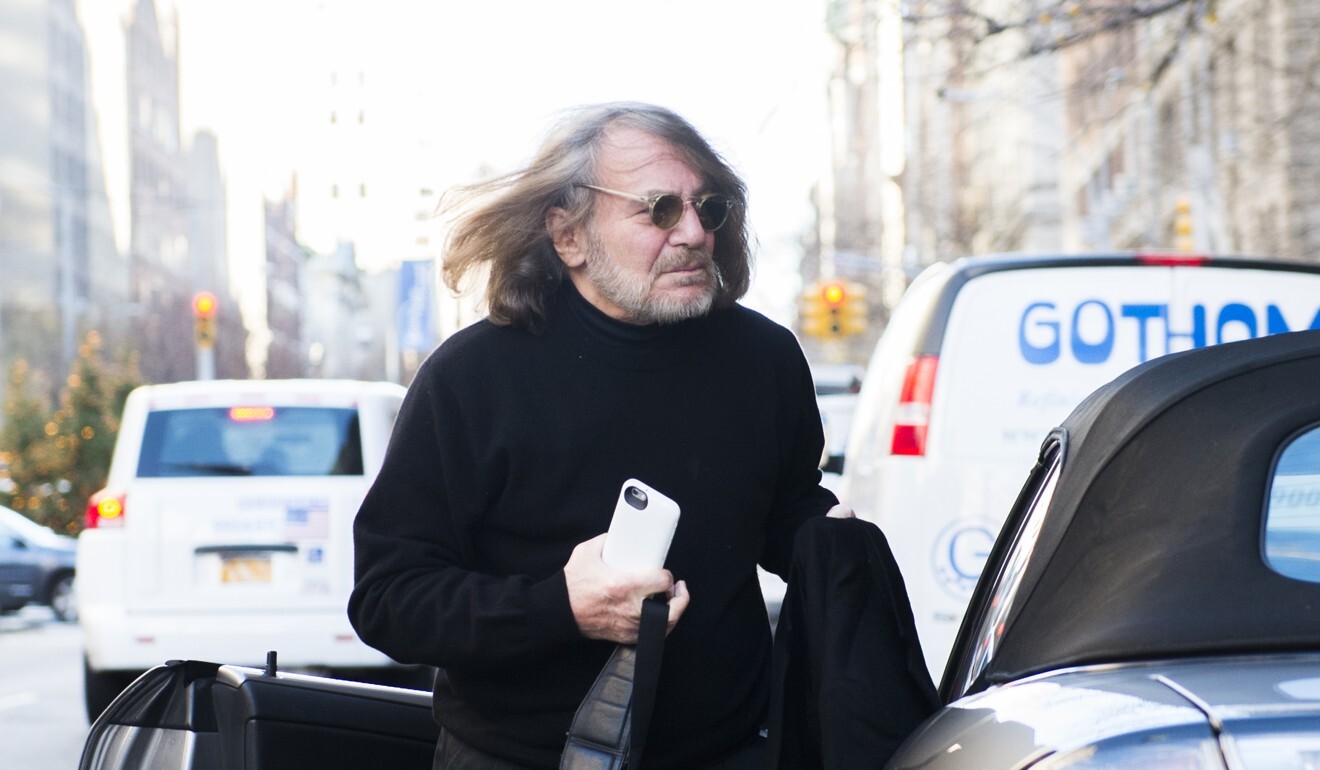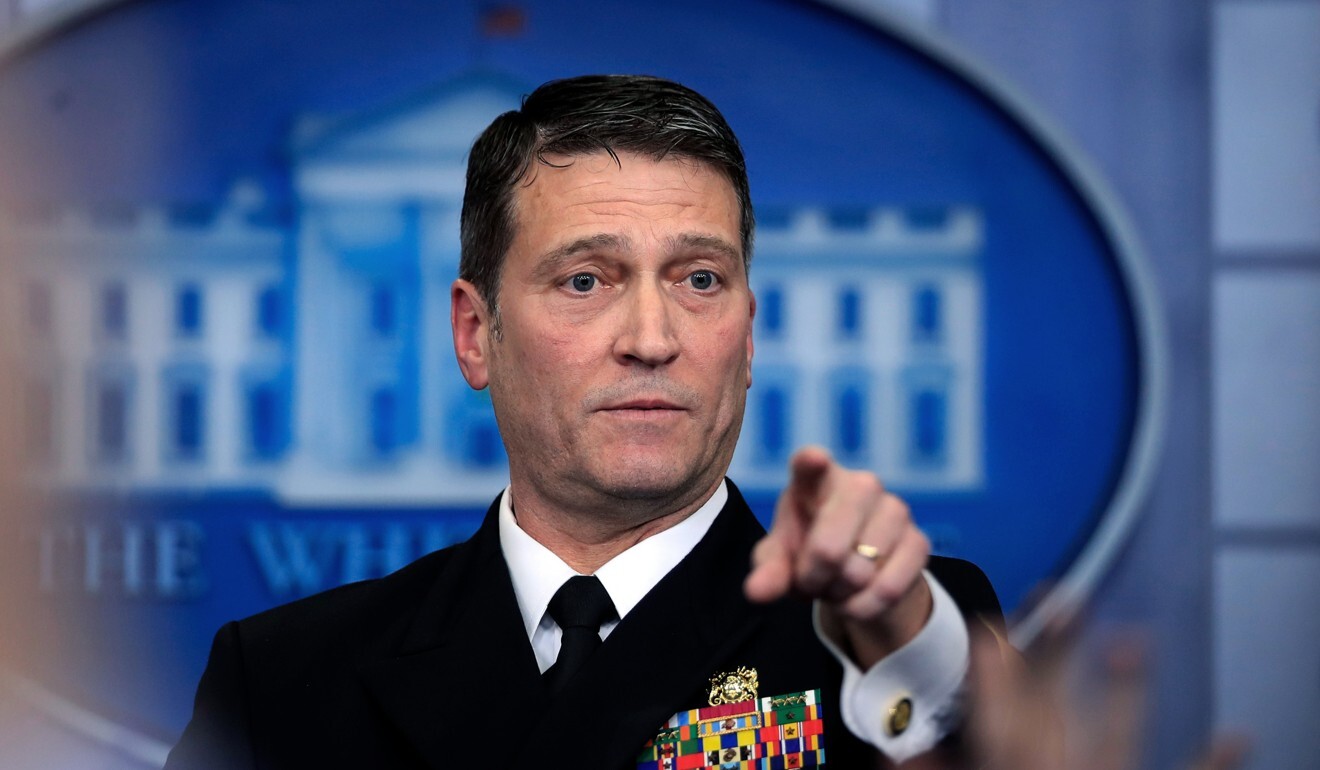
Donald Trump’s doctors have credibility gap as confusion swirls around his condition
- Suspicions have been raised for years about the amount of pressure Trump puts on his doctors
- Pronouncements on the president since he was diagnosed with Covid-19 raise more questions than answers
The world fixated on every word uttered by Donald Trump’s White House doctor Sean Conley over the weekend, temporarily elevating the importance of the former US Navy emergency medic above the US president, who has a reputation for dubious medical assessments.
It still is not clear how much of the comments by Dr Conley – an osteopath who was promoted in 2018 to replace a controversial predecessor – is dictation from Trump, the latter having confounded and frustrated many public health experts with his assessments about Covid-19 since the pandemic hit the United States.
Most have dismissed Trump’s insistence earlier this year, for example, that hydroxychloroquine could effectively treat Covid-19 as well ashis suggestion that disinfectants and ultraviolet light could also work.

“Conley refused to answer direct questions about how bad the president’s condition was, and this is not just from me; the [White House] chief of staff [Mark Meadows] has issued contradictory statements,” Benhur Lee, the Ward-Coleman chair in microbiology at the Icahn School of Medicine at Mount Sinai in New York, said. “Treatments are never without side-effects, so doctors are usually conservative and give treatments when they are indicated clinically.
“The bottom line is we don’t know what to believe and don’t know who is really in charge of managing Trump.”
Conley graduated from the Philadelphia College of Osteopathic Medicine in 2006, The New York Times reported, citing records from the Virginia Board of Medicine, and received his bachelor of science degree from the University of Notre Dame in Indiana.
Although osteopathic programmes, which confer a DO designation, “tend to be less competitive” than allopathic programmes that provide the more commonly known MD label, students in both receive similar training, according to an explanation by the David Geffen School of Medicine at University of California, Los Angeles. “However, osteopathic schools have a stronger focus on alternative therapies, holistic medicine and disease prevention.”
Trump’s hydroxychloroquine fixation led to the first scrutiny of Conley’s judgment.
Trump’s oxygen levels dropped and he has been treated with steroids
His announcement in May that Trump was taking the antimalarial medication as a preventive measure sparked accusations by health authorities worldwide that the president’s touting of hydroxychloroquine as a Covid-19 treatment risked the health of those who would resort to the medication to recover from the illness and those who depended on a ready supply of it for conditions it is traditionally prescribed for.
In announcing that Trump had started a course of the medication, Conley said: “We concluded the potential benefit from treatment outweighed the relative risks. In consultation with our inter-agency partners and subject matter experts around the country, I continue to monitor the myriad studies investigating potential Covid-19 therapies.”
Official statements about the president’s health are no longer curiosities or punchlines for television show hosts since Trump was transferred to a military hospital on Friday.
Even before the pandemic, questions swirled around the amount of pressure Trump put on his doctors and their own credibility.

In 2015, Dr Harold Bornstein, the president’s personal doctor at the time, described then-candidate Trump‘s health in glowing terms, asserting that his “physical strength and stamina are extraordinary”, using language very similar to the way the US leader assesses himself and denigrates his former challenger Hillary Clinton and current presidential hopeful Joe Biden.
Bornstein told CNN in 2018 that Trump “dictated that whole letter”, a minor controversy that quickly faded amid the many others that Trump has been embroiled in throughout his presidency.
Conley’s predecessor Ronny Jackson – a Republican and staunch Trump ally who is running for a seat in Congress to represent a district in Texas – revealed in July that he does not “wear a mask all that often”. That stance undermined Texas Governor Greg Abbott, also a Republican, who had mandated that most of his state‘s residents wear face masks in public after infections there began to spike in June.
Jackson also made a widely criticised assessment in January 2018 that Trump “has incredibly good genes, and it’s just the way God made him”.
Appointed doctor to the president by former incumbent Barack Obama and retained by Trump, Jackson was nominated by Trump in March 2018 to become secretary of veterans affairs. His nomination was derailed by allegations by Senator Jon Tester, a Democrat from Montana, that Jackson had overprescribed pills and drunk alcohol on the job. The White House eventually withdrew its nomination and Jackson then left its medical unit.
After claims emerged about Jackson’s alleged drinking, late-night comedy show host Stephen Colbert riffed on a report about how Jackson allegedly banged on the hotel room door of a female employee while intoxicated, saying: “Now, we don’t know the full story. Maybe he was just warning her that there was an aggressive, drunk doctor outside her door.”
Comedic send-ups, contradictions and scepticism notwithstanding, statements by the White House chief doctor are the only window the public has onto the president’s health, a condition that affects everyone, American or not. Global markets swooned on Friday, immediately after Trump’s diagnosis became public.

Since his announcement about Trump’s course of hydroxychloroquine, Conley has been largely absent from any disputes over Covid-19 treatments or any other aspect of the pandemic.
So far, Conley has been prescribing for Trump the Covid-19 treatments generally accepted in the medical community to have shown benefits in battling the illness, including the antiviral medication remdesivir by Gilead Sciences and the steroid dexamethasone.
And he has said nothing publicly about hydroxychloroquine since Trump’s diagnosis except that Trump was not taking it.

